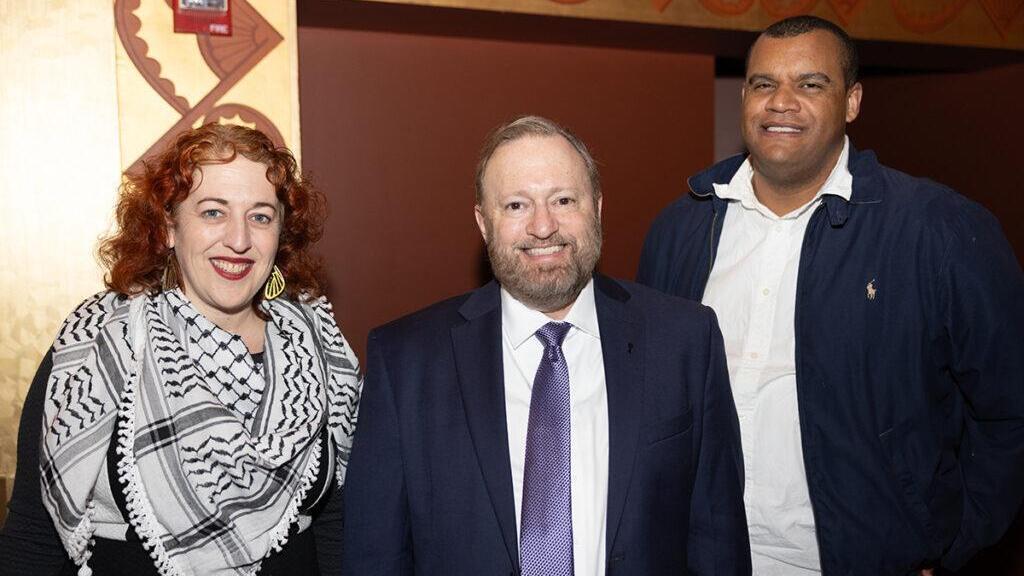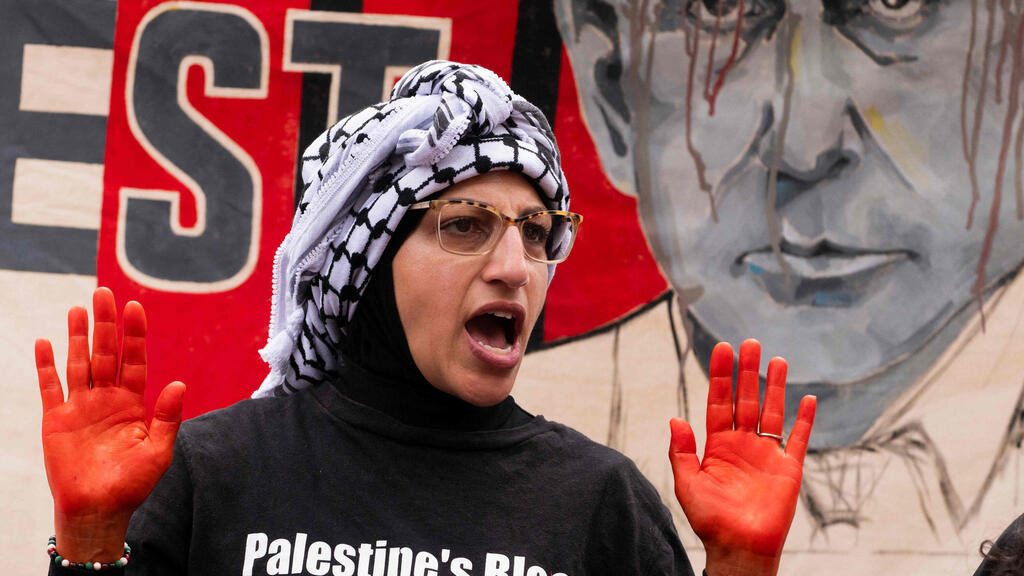A Jewish film curator and long-time staff member at Emerson College in Boston is suing the college for wrongful termination.
In the complaint filed in Massachusetts state court, Anna Feder alleges that she was fired for what she calls “personal political activism” - specifically, for screening the documentary Israelism, a film that challenges traditional American Jewish views on Israel and critiques Zionism.
Feder worked at Emerson for 17 years and led the college’s Bright Lights Film Series since its launch in 2012 - designed to "foster conversations between students and filmmakers." In the summer of 2023, before the Hamas-led attack on Israel on October 7 and the subsequent war in Gaza, Feder scheduled Israelism to be screened in November. The decision sparked internal concerns once the war began.
According to the lawsuit, Feder was asked by members of Emerson’s administration - including one faculty member and a trustee - to postpone the screening. She agreed to reschedule the event to February 2024 but rejected calls to cancel it entirely. In a meeting, Emerson President Jay Bernhardt, who is also Jewish, reportedly told Feder that the trustee who raised concerns had acted inappropriately and that the screening should go ahead.
Despite the postponement, Emerson publicly distanced itself from the screening. A statement from the college noted that “The screening of films in this series does not connote endorsement or support of the film’s content by Emerson College or the Visual and Media Arts Department.” Feder later noted that no other film in the series had ever been subject to such a disclaimer.
The lawsuit details how, ahead of the screening, Feder and the president’s office received more than 1,000 messages — mostly from individuals outside the college — accusing her of inciting violence and endangering Jewish students. Feder offered these individuals the opportunity to attend the event and participate in post-screening discussions.
The screening took place without incident and became the most attended event in the series’ history.
Feder’s lawsuit claims that Emerson retaliated shortly thereafter. In early August 2024, she was informed that her programming choices for the next academic year would require pre-approval from senior administrators — an unprecedented restriction. On August 13, she was told that both her position and the Bright Lights Film Series were being terminated due to budget cuts.
She was one of ten staff members laid off in what the college said was a broader response to reduced enrollment and “negative press” following pro-Palestinian student protests. Feder was the only union member among those laid off, and, according to her, the most senior.
Get the Ynetnews app on your smartphone: Google Play: https://bit.ly/4eJ37pE | Apple App Store: https://bit.ly/3ZL7iNv
In public statements, Emerson has maintained that the layoffs were part of a cost-cutting effort unrelated to political or programming decisions. “The College adamantly denies any wrongdoing in this cost-reduction process,” a spokesperson said. But Feder contends otherwise. In her lawsuit and in a personal op-ed published in the student paper the Berkeley Beacon, she wrote, “I’ve anticipated this termination since I went ahead with the screening of Israelism."
She added that her termination was not about money: “The Bright Lights Cinema Series is fairly low cost to run—around $20k—and I had a plan in place to make the series revenue-neutral within the next year.” She suspects her vocal support for the student encampment in support of Gaza and her criticism of Emerson’s administration also contributed to her dismissal.
Feder participated in a four-day protest encampment in April 2024 organized by the student group Boylston Students for Justice in Palestine. She live-streamed the police sweep that ended the protest and was later seen supporting detained students at nearby police stations. Her lawsuit claims that another staff member who was laid off at the same time was also an anti-Zionist Jew and involved in Palestinian advocacy.
In her op-ed, Feder criticized what she sees as the erosion of Emerson’s stated values. “Expression necessary to evolution” is the college’s official motto, but, she wrote, “It looks good on logos and on enrollment materials” while being undermined in practice. She framed her support for Palestinian rights not as fringe politics but as grounded in her Jewish identity: “It is the highest expression of my values as a Jew and as a human.”
She also challenged the narrative that campus speech about Israel and Zionism necessarily puts Jewish students at risk. “Jewish students, faculty, and staff are all experiencing unprecedented levels of harassment and repression,” she wrote. “We complicate the narrative that to be Jewish is to unconditionally support the state of Israel.”
The legal basis of Feder’s lawsuit is Massachusetts’ Article 16, a provision in the state’s Declaration of Rights that some legal scholars interpret as extending free speech protections to private institutions like Emerson. While the First Amendment typically applies only to government entities, Feder and her legal team are hoping to test whether Article 16 can hold private colleges accountable for retaliating against political speech.
If successful, the case could have wide-reaching implications for how private universities in Massachusetts—and possibly other states—handle speech related to contentious political topics, especially the Israeli-Palestinian conflict. For now, Feder’s case remains one of the most high-profile challenges to a growing pattern of campus crackdowns on pro-Palestinian advocacy.
“We all need to find the courage in this moment and push back against the attacks on speech - particularly on college campuses,” Feder wrote. “If we don’t defend our rights vigorously, they will surely be taken away.”





